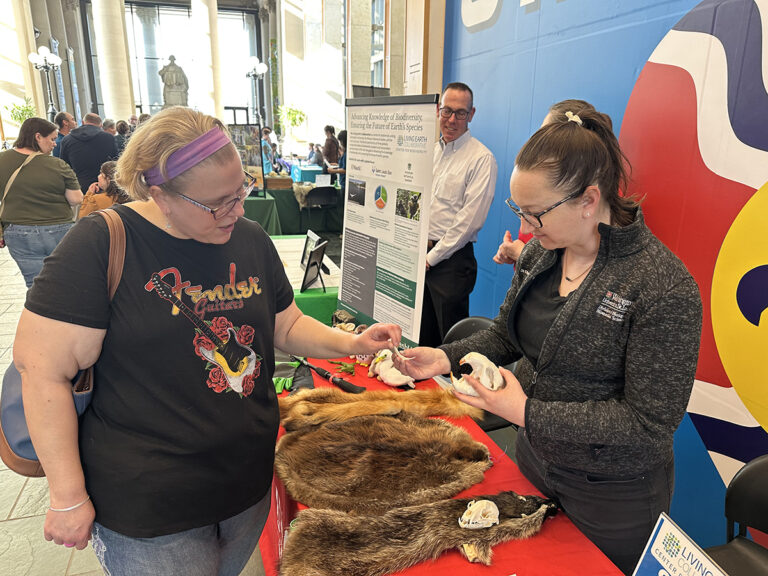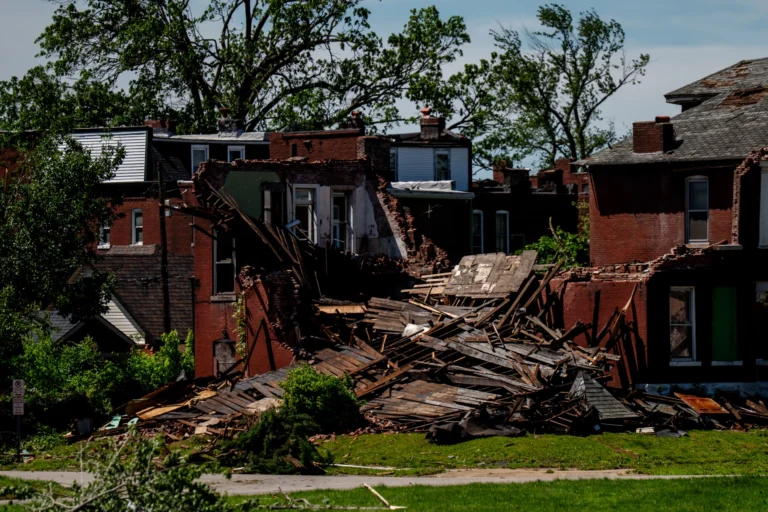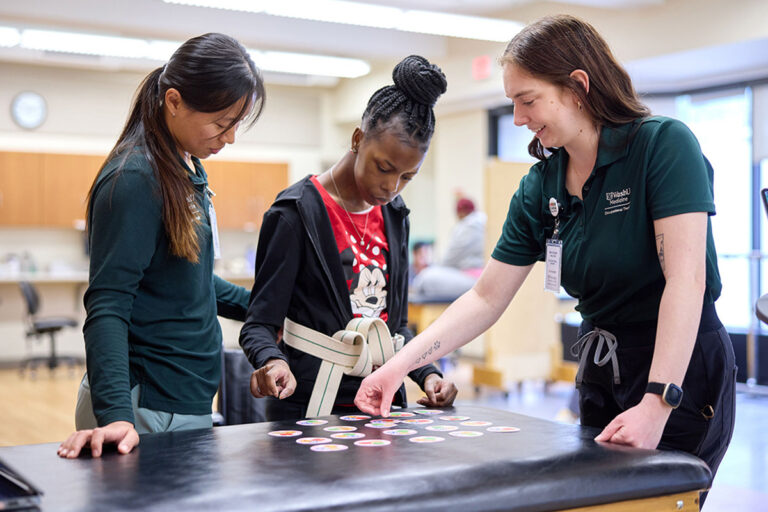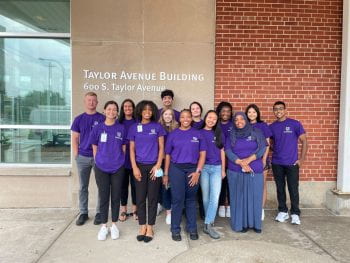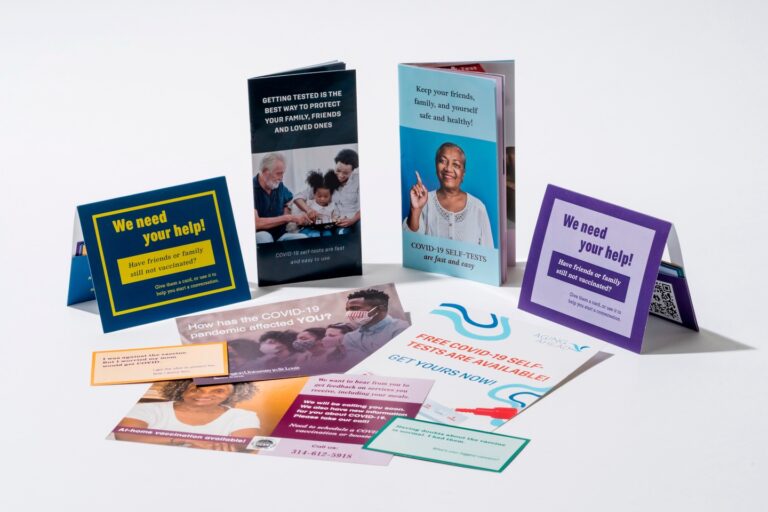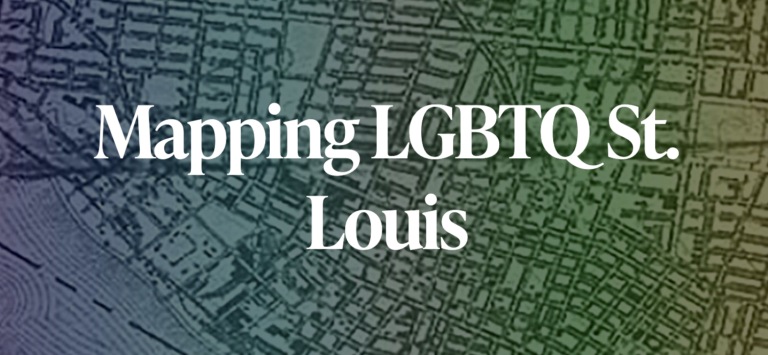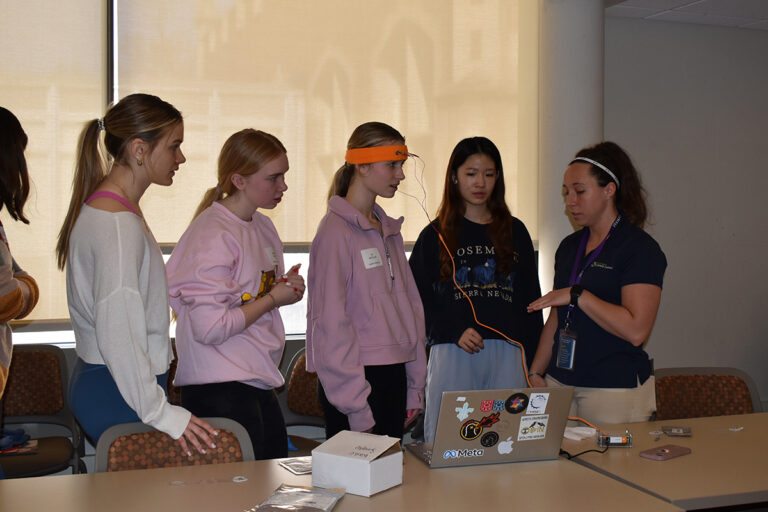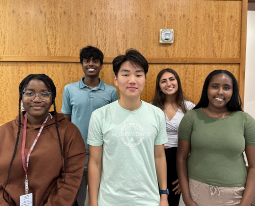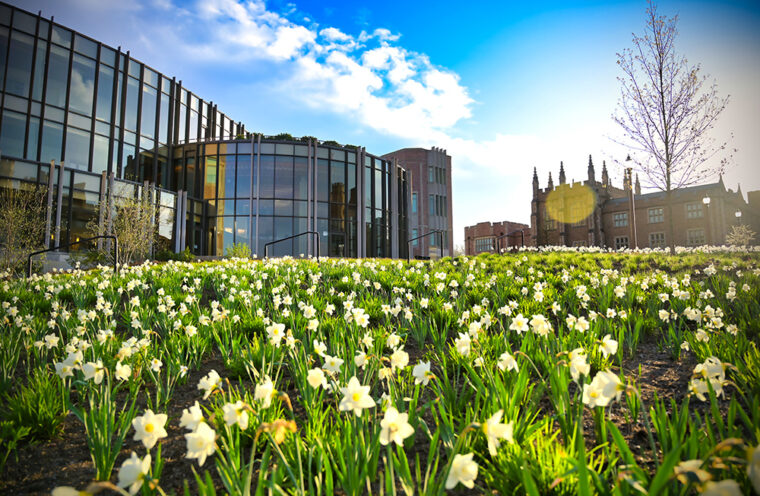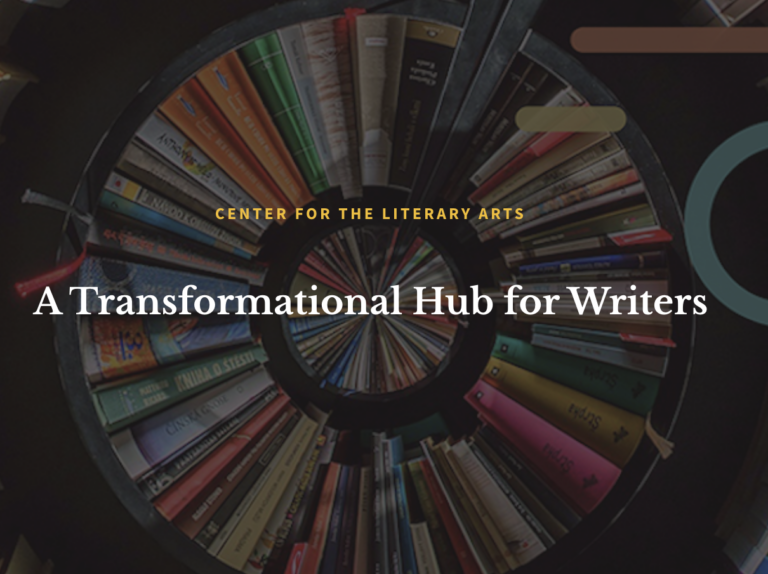WashU-sponsored Thursday Nights at the Museum celebrate St. Louis
Hosted at the Missouri History Museum and sponsored by Washington University in St. Louis, this free weekly series invites families and community members to explore the vibrant culture and history of St. Louis. Each Thursday evening begins at 5 p.m. with children’s activities, local food and drink, and interactive exhibits, followed by featured programming such […]
WashU project to analyze environmental health of St. Louis neighborhoods impacted by tornado
In the months following the tornadoes that struck several St. Louis neighborhoods, Washington University researchers have been working alongside community partners to better understand the environmental health impacts facing residents. Through the Environmental Health Initiative, teams are conducting neighborhood walkthroughs, listening sessions, and field assessments to identify concerns such as mold, debris exposure, and air-quality […]
Together, WashU Medicine MD, OT, PT students treat patients at Pro Bono Health Clinic
Student-led, patient-first. At the WashU Medicine Pro Bono Health Clinic, medical, occupational therapy and physical therapy students team up to provide much-needed care to uninsured community members in the St. Louis area.
Summer Research Program—Aging & Neurological Diseases Track
In this program offered by the Harvey A. Friedman Center for Aging at WashU Brown School, local students learn about three neurological conditions and diseases that often interplay with the aging process — stroke, Parkinson’s disease, and dementia. Students are matched with a faculty mentor and will spend eight weeks as part of their lab or center.
Health Communication Design Studio
The Health Communication Design Studio (HCDS) at WashU Sam Fox School investigates pressing issues related to public health, particularly in underserved populations. It creates strategic design solutions to address these challenges and evaluates their impact in the St. Louis community.
Mapping LGBTQ St. Louis
This digital collection from University Libraries uses maps to explore the region’s LGBTQ communities from the end of World War II in 1945 through the passage of St. Louis’ first gay and lesbian-inclusive civil rights ordinance in 1992. The project aims to document the history of a people whose sexual and gender nonconformity has often meant that their stories have gone unheard, unrecorded, un-archived, and unremarked upon.
St. Louis Area Brain Bee
The St. Louis Area Brain Bee (SLABB) is an annual event for high school students that are interested in the brain and neuroscience led by WashU Arts & Sciences. Demonstrations, panels, and material come from Brain Facts, a book produced by the Society for Neuroscience. SLABB pays for the winner to compete in the US National Brain Bee competition.
Cancer Research Inspiring Future Scientists Program (CRISPr)
Cancer Research Inspiring Future Scientists Program (CRISPr) provides St. Louis area high school students an entry into academic research. Participants receive a generous stipend, mentorship, training, and access to a world-class community and environment. No previous research experience is required. Students from historically underrepresented backgrounds are particularly encouraged to apply.
Open Classroom
To connect with communities locally and globally, the Brown School created Open Classroom – a series of free, one-hour webinars on a wide range of social work, public health, and social policy topics. The Open Classroom library now includes more than 250 programs, with new webinars offered every month.
Center for the Literary Arts
The Center for the Literary Arts is a transformational hub for creative writing and translation, as well as different forms of literary arts and creative practice across Washington University and the St. Louis community. As an initiative of the Arts & Sciences Strategic Plan, the Center explores all the ways in which literary art and creative practice can change the world around us. It seeks to unite communities within and beyond academia by reimagining vital literary art-making for the 21st century locally and globally.
